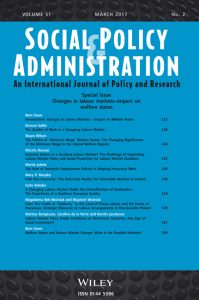Finding Environmental “Political Tender”: Expressing Forest Loss in Terms of Bank Crises and Babies in Greenhouse Gas Emissions
by ESMinihan
 Society is faced with a fundamental difficulty when prioritizing how, and if, to address issues related to environmental quality: determining the value of environmental “goods and services” such as biodiversity, habitat, and carbon sequestration. Even when there is consensus amongst stakeholders that all these natural services are important, given there are no explicit markets for such goods revealing a price in common units, determining which issue should receive public attention (and funds) may depend on how the value of each service is estimated and communicated.
Society is faced with a fundamental difficulty when prioritizing how, and if, to address issues related to environmental quality: determining the value of environmental “goods and services” such as biodiversity, habitat, and carbon sequestration. Even when there is consensus amongst stakeholders that all these natural services are important, given there are no explicit markets for such goods revealing a price in common units, determining which issue should receive public attention (and funds) may depend on how the value of each service is estimated and communicated.
The prominence of climate change in the political sphere relative to other concerns is investigated by environment correspondent for the BBC, Richard Black in Hijacked by Climate Change? Biodiversity is not in the forefront, according to economist Pavan Sukhdev, because “climate change is already occupying mind space and heart space,” suggesting even the most shocking figures coming out of non-market valuation research on ecosystem services may not be sufficient to advance the biodiversity agenda without also appealing to our sociological imagination.
Population growth, framed as a contributor to stress on natural resources and environmental quality, may be absent from the public debate because it is all too good at activating our imagination. In Black’s article Jonathan Porrit, a former government advisor, suggests discussing population makes people uncomfortable because it raises issues about religion, culture, and male dominance.
 The Economics of Environment and Natural Resources
The Economics of Environment and Natural Resources

Population Issues by Margaret Pabst Battin in A Companion to Bioethics







1756-2589/asset/NCFR_RGB_small_file.jpg?v=1&s=0570a4c814cd63cfaec3c1e57a93f3eed5886c15)
It seems that precisely because talking about population raises issues about religion, culture, and male dominance (power issues) that we should be discussing it now rather than as the problem progresses. Sociologists need to participate in these discussions to ensure that context and power are included.
Keri
Thanks for your comment Keri. The need for cooperation between economists and other social scientists, particularly for environmental issues, is what I wanted to bring forward for discussion with this post.